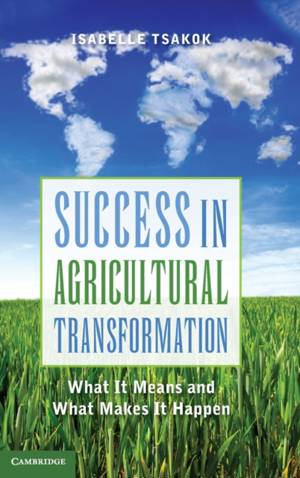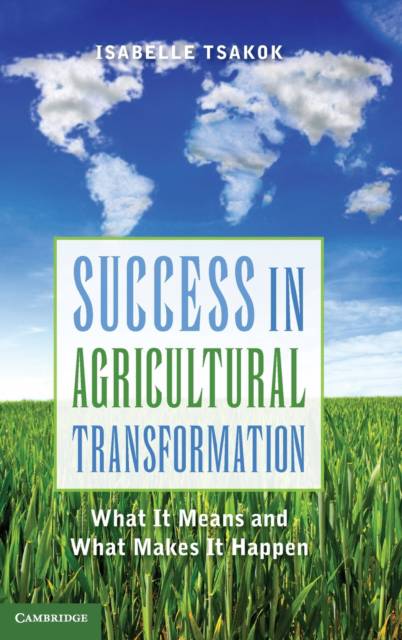
Door een staking bij bpost kan je online bestelling op dit moment iets langer onderweg zijn dan voorzien. Dringend iets nodig? Onze winkels ontvangen jou met open armen!
- Afhalen na 1 uur in een winkel met voorraad
- Gratis thuislevering in België vanaf € 30
- Ruim aanbod met 7 miljoen producten
Door een staking bij bpost kan je online bestelling op dit moment iets langer onderweg zijn dan voorzien. Dringend iets nodig? Onze winkels ontvangen jou met open armen!
- Afhalen na 1 uur in een winkel met voorraad
- Gratis thuislevering in België vanaf € 30
- Ruim aanbod met 7 miljoen producten
Zoeken
Success in Agricultural Transformation
What It Means and What Makes It Happen
Isabelle Tsakok
Hardcover | Engels
€ 204,95
+ 409 punten
Uitvoering
Omschrijving
To lift and keep millions out of poverty requires that smallholder agriculture be productive and profitable in the developing world. Do we know how to make this happen? Researchers and practitioners still debate how best to do so. The prevailing methodology, which claims causality from measures of statistical significance, is inductive and yields contradictory results. In this book, instead of correlations, Isabelle Tsakok looks for patterns common to cases of successful agricultural transformation and then tests them against other cases. She proposes a hypothesis that five sets of conditions are necessary to achieve success. She concludes that government investment in and delivery of public goods and services sustained over decades is essential to maintaining these conditions and thus successfully transform poverty-ridden agricultures. No amount of foreign aid can substitute for such sustained government commitment. The single most important threat to such government commitment is subservience to the rich and powerful minority.
Specificaties
Betrokkenen
- Auteur(s):
- Uitgeverij:
Inhoud
- Aantal bladzijden:
- 424
- Taal:
- Engels
Eigenschappen
- Productcode (EAN):
- 9780521888943
- Verschijningsdatum:
- 8/08/2011
- Uitvoering:
- Hardcover
- Formaat:
- Ongenaaid / garenloos gebonden
- Afmetingen:
- 155 mm x 229 mm
- Gewicht:
- 703 g

Alleen bij Standaard Boekhandel
+ 409 punten op je klantenkaart van Standaard Boekhandel
Beoordelingen
We publiceren alleen reviews die voldoen aan de voorwaarden voor reviews. Bekijk onze voorwaarden voor reviews.











